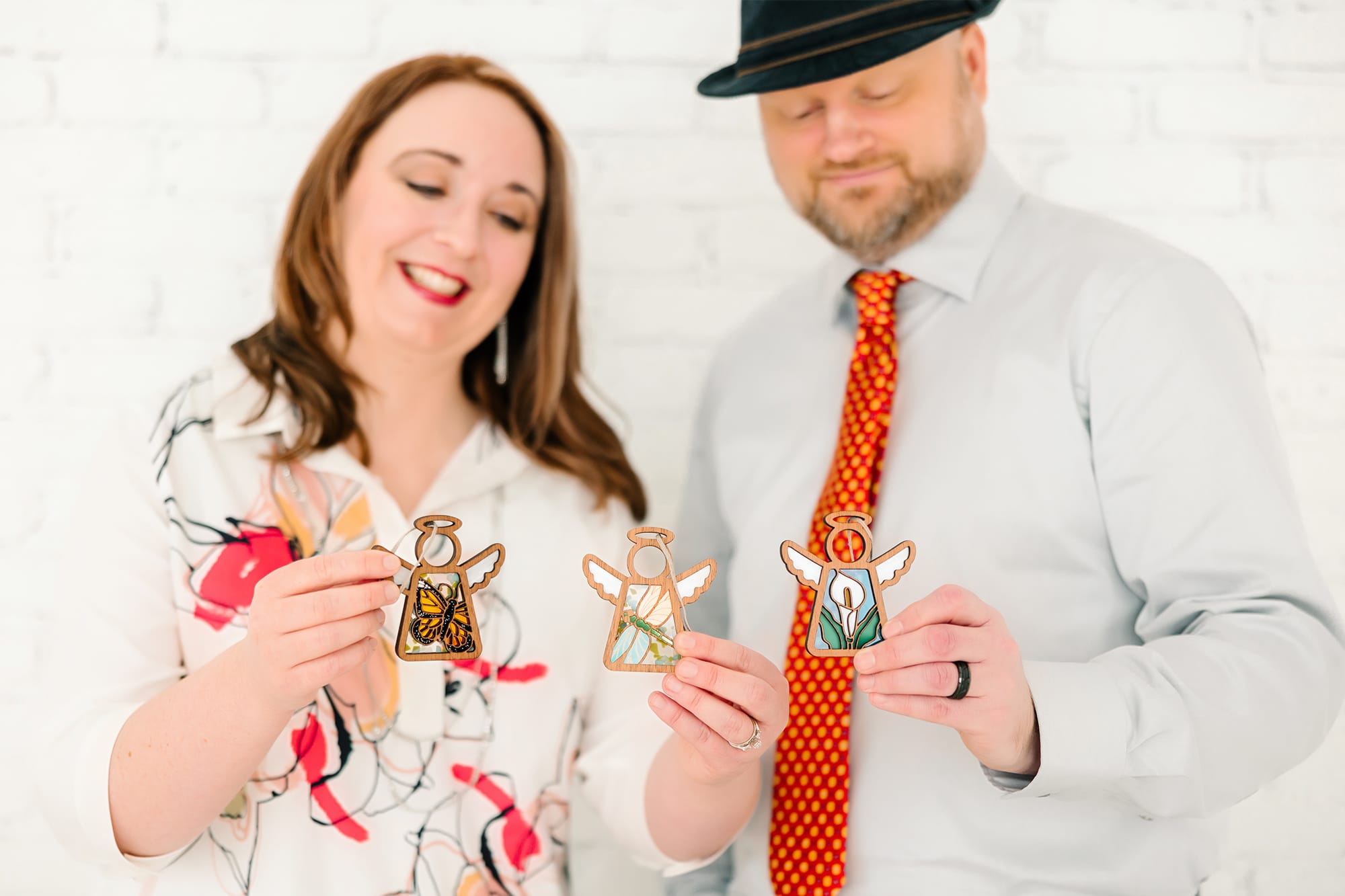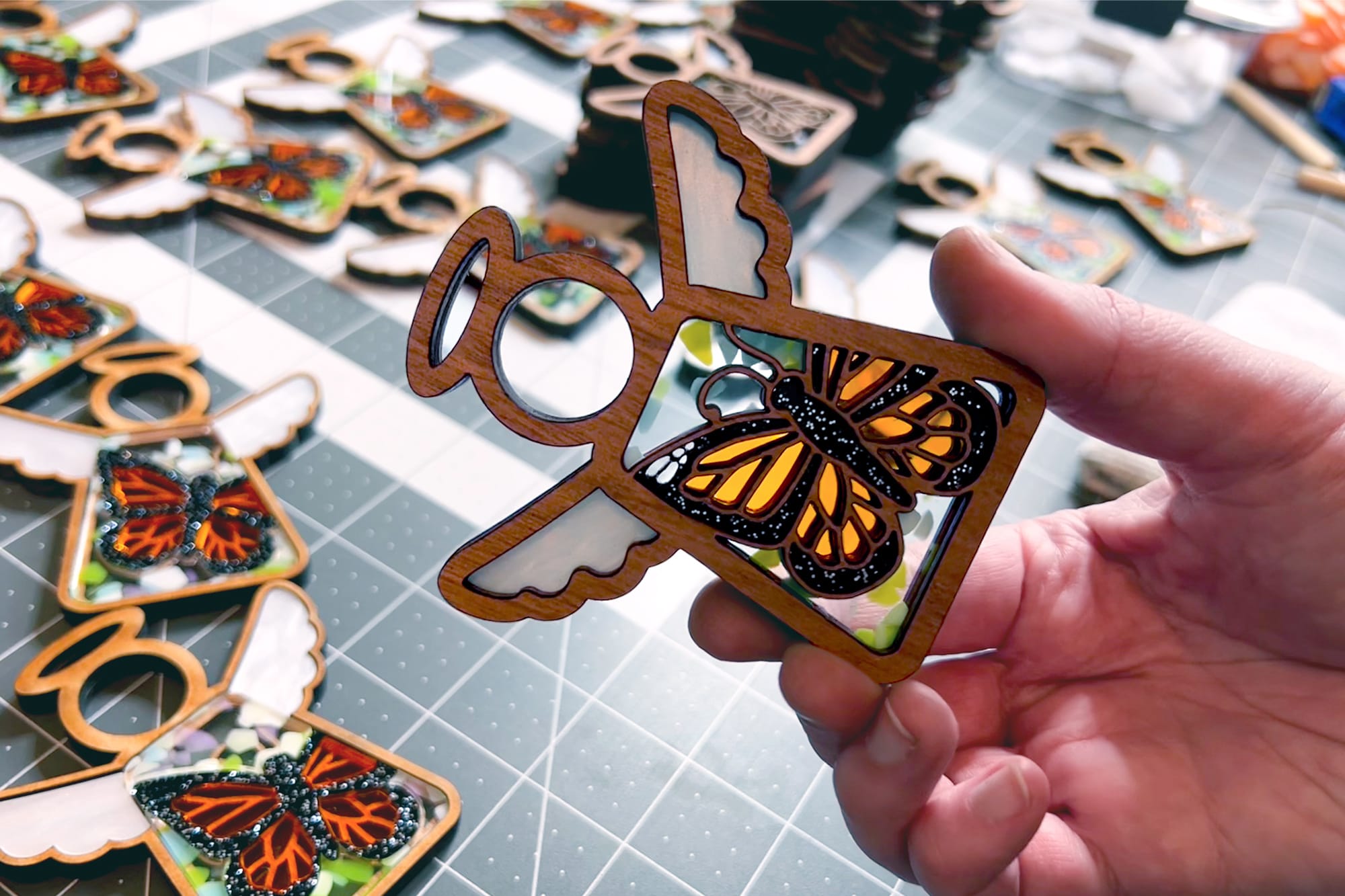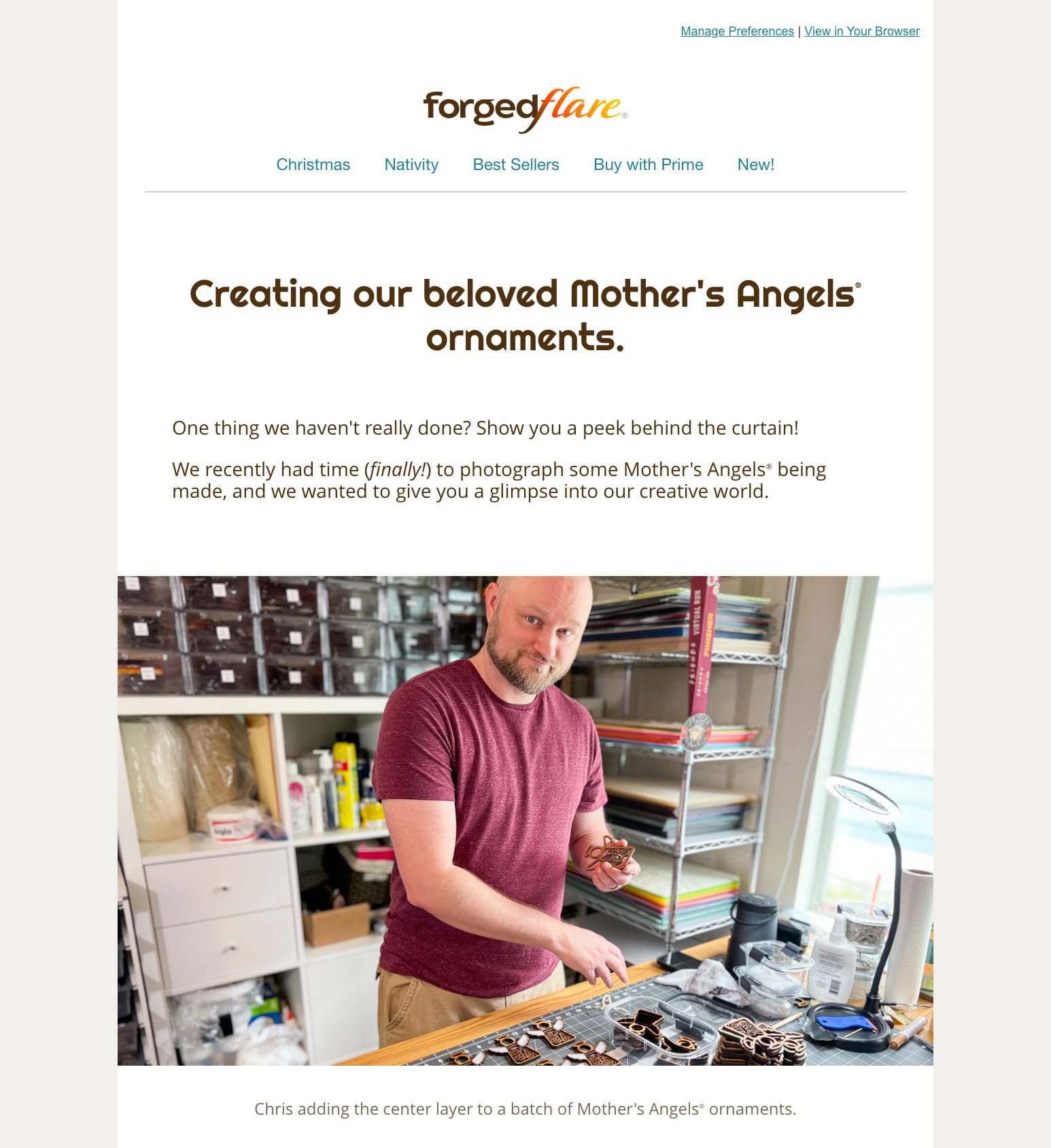
Social Media Ads Became More Expensive in 2023: How I’m Shifting My 2024 Marketing Approach
When Jen Street noticed her business’ online ads becoming less successful, she pivoted instead of panicked. Learn the approaches she’s using in the new year.

Founder of Forged Flare
Last year was a big year for my handmade ornaments company, Forged Flare. We went into 2022 determined to nail our online advertising strategy. We spent the early part of the year experimenting with different platforms, creatives, and approaches so that when the holiday season—our biggest time of year—came, we could crank up the budget and reap the rewards. And it paid off: In Q4 of 2022, we quadrupled our income from the previous year.
We were riding high going into 2023, thinking we had it all figured out. And then, the tides started shifting. Early in the year, we noticed our ad spend percentages increasing (in other words, we were paying more for fewer conversions). By April, our ad spend was up 20 percent, but our sales had slowed. Looking at these results, we decided to cut back on Meta ad spend in May and pause all social media ads in June.
Summer is historically a slow season for us, so we decided to save our ad budget for Q4 and instead spend the summer experimenting with other marketing approaches. Since I can’t be the only founder affected by the ups and downs of social media ads, I’d love to share the new tactics we’ve tried and how the results of these experiments are influencing how we approach marketing as we move into the new year.

We’re building deeper relationships with customers
There are many ways to measure a conversion from an ad. While a sale has always been the ultimate goal, we’ve also worked over the years to capture email addresses from customers and potential customers. Bringing them into our orbit so we could drive a sale later on was a smart idea, but we had never made the most of these relationships.
In the past, we would send an occasional email when we had time, but this year, we dedicated ourselves to sending two emails a week, one more sales-oriented and one more content-oriented. For the latter, I thought strategically about what customers would want to hear from me to make them excited to buy, leading to content around everything from why our products cost what they cost to the behind-the-scenes of running a small business.

This approach has really helped us leading up to the holiday season. Subscribers who have never bought from us got more familiar with our brand so that, when the holidays rolled around, we’re top of mind. Existing customers learned more about the small business they’re supporting and feel like they’re part of something special. All of that helps drive sales—our conversions attributed to email marketing are up 130 percent over last year.
We have a strong support base of customers who love our products and, going into next year, I want to continue looking for ways to tap into their loyalty to help us drive growth, such as by launching an affiliate program. We are testing this with one micro-influencer who reached out to us over the holiday season, and I’m excited to see the results of that. Once the holidays wind down, I hope to roll this out to some of our best customers who already sing our praises. It would be an awesome way to reward them for something they already do while furthering our business growth.
We’re looking for support from other business owners
I’m not going to beat around the bush—even with careful strategizing, we’re currently down 50 percent from where we were at this time last year. Instead of freaking out about this (okay, I’m a little freaked out), I went looking for insights from others.
I’m a member of several communities of small business owners, including Creative Hive and Multi-Stream Machine by The Product Boss podcast. When things were looking down this year, I polled these groups to see what other people were experiencing, and quickly heard that I wasn’t the only one seeing a downturn despite our best efforts.
It’s not good to hear that other companies are in the same situation that we are, but it definitely makes me feel less lonely as a business owner. Plus, this vulnerable post helped land me a collaboration that gave Forged Flare a nice boost. We were invited to participate in an online shopping event called “25 on the 25th,” where 25 artists and small makers co-market the event, and shoppers give their email addresses for access to exclusive deals on everyone’s website. We gained a significant number of new email addresses as a result, the bulk of which are still in our email flow, meaning they are slowly getting to know us and everything we have to offer.
Going into next year, I want to continue to remember we don’t have to be in this alone. Besides continuing to lean on the business communities for morale and strategic support, I want to look for more collaborative opportunities to lift each other up and share our audiences.
We’re getting more strategic with our ads (and always watching the numbers)
We’re not out of the online advertising game entirely. Instead, we’re looking to get more targeted and strategic with how we spend our budget, and we’re always monitoring performance trends carefully so we can change our strategy at the drop of a hat.
For instance, we’ve noticed more consistent success advertising on Amazon and Etsy, which makes sense, given users of those platforms are actually going there to shop.
Going into the holiday season, we started dipping our toes back into running social media ads with a more granular focus on what’s performing well on each platform. For instance, after running a few weeks of tests, we’ve decided Instagram ads just aren’t right for us right now: The audience there loves looking but never seems to buy.
Facebook, on the other hand, has a slightly older audience that’s more in line with our target customer and has been working for us again, though not as well as last year. Some of this is, without a doubt, because of the economy. I also think pulling our ad spend entirely over the summer is hurting us now. The more information these platforms have about which ads are succeeding with which customers, the more they can successfully tailor them. When we stopped running ads, we stopped that flow of information, meaning the platforms have to relearn as we ramp up for the holiday season. Even though I hate spending money and not seeing an immediate return, I think next year I’ll keep a $5-a-day ad spend going all summer to help avoid this dip.
Finally, instead of using the same creative across platforms, I plan to create more targeted content next year. For instance, on X and TikTok, the younger audience doesn’t seem to resonate with the frilly, pretty ads that do so well on Facebook. I have ideas for creating slightly snarkier, more authentic ads for those platforms, and am excited to see the results.

If it’s not already obvious, succeeding with online advertising is an ongoing game of trial and error. What worked for us last year isn’t working this year, and I cannot emphasize enough how much constant testing is required. We always start small (think $10 a day), track every campaign and every platform carefully, and then scale up what’s working. When things change, and an ad campaign stops performing, I’m never afraid to try something new.
I’ve been in business for four years, and I swear every single day is a new experience. This year has been an especially wild ride, and while I can’t predict what 2024 will bring, I feel confident that these approaches, combined with our willingness to adapt quickly, will help us continue to succeed for many years to come.
Try Buffer for free
180,000+ creators, small businesses, and marketers use Buffer to grow their audiences every month.
Related Articles

TikTok just introduced Bulletin Boards, similar to Instagram's Broadcast Channels. Here's what you need to know.

Video, photos, carousels, or text? We dug into Buffer’s data, analyzing millions of social posts from Instagram, TikTok, LinkedIn, Facebook, Threads, and X to find out which content format performs best.

In this article, you'll find 20+ essential LinkedIn statistics that reveal the platform's reach, effectiveness, and continued growth.